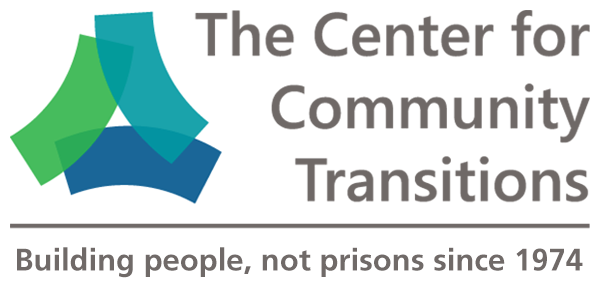The Center for Community Transitions Announces Leadership Transition
After five years of transformative leadership, Patrice Funderburg, Executive Director at The Center for Community Transitions, Inc. (CCT), has announced she will step down in June 2025. Since transitioning into the role from board co-chair in 2020, Funderburg has been a driving force behind CCT’s mission of strengthening the community through second chances, leaving the fifty-year-old agency well-positioned to continue creating opportunities for individuals with criminal records and their families.
“Patrice’s leadership has strengthened CCT in countless ways, and she leaves the organization well-prepared to continue creating opportunities for second chances,” said Board Chair Shamira Wright. The CCT Board has partnered with Armstrong McGuire, a full-service nonprofit consulting firm, to provide executive transition guidance and search support during the transition.
Guided by her passion for justice and equity, Funderburg leads a team managing CCT’s three core programs:
- LifeWorks! — providing workforce training, job placement, and retention support for formerly incarcerated individuals and those living with criminal convictions who are seeking employment.
- The Center for Women — a 30-bed residential work-release facility that helps women nearing the end of their state prison sentences successfully transition back into the community.
- Behavioral Health Program — launched in 2021, offering gender-responsive counseling and trauma-informed care to Center for Women residents as they prepare for reentry.
Focused on stabilizing and strengthening the organization’s infrastructure, Funderburg quadrupled CCT’s cash reserves, secured funding for capital improvements, and formalized internal processes that made operations significantly more efficient and sustainable. Under her leadership, CCT secured over $1 million in American Rescue Plan Act funding, which helped launch the behavioral health program and expand Families Doing Time services. Patrice also formed a partnership with the Society for Human Resource Management (SHRM) Foundation to promote second chance hiring through the “Getting Talent Back to Work” initiative, increasing local awareness and employment opportunities for people with criminal records. Most recently, CCT achieved a significant milestone when the Center for Women earned accreditation from the American Correctional Association (ACA) for Adult Residential Community Services (ARCS) — making it the only pre-release residential facility in North Carolina to hold this distinction.
Beyond operational improvements, Funderburg has been a tireless advocate for making Charlotte a “second chance city.” She worked relentlessly to amplify policies that expand access to transition pathways for currently and formerly incarcerated individuals. CCT’s Board of Directors also became a reflection of the community it serves under Patrice’s leadership, with half of its members having direct lived experience with the justice system — a goal she championed to ensure equitable representation in the agency’s decision-making.
Prior to joining CCT, Funderburg spent over two decades in corporate human resources, bringing a wealth of knowledge in talent acquisition, organizational development, DEI, supplier diversity, and business process improvement to her nonprofit leadership. After stepping down, her plans are simply to focus on self-care. “Serving as CCT’s Executive Director has been one of the most meaningful chapters of my career,” said Funderburg. “The work of creating second chance pathways never ends, and I am incredibly proud of what we’ve accomplished together during my time at CCT. I am confident that CCT’s impact will continue to grow in lockstep with Charlotte’s growing ecosystem of reentry partners.”
As CCT approaches its next chapter, the organization remains committed to its core belief: strong communities are built through second chances. Funderburg’s leadership has been instrumental in laying the groundwork for a stronger, more equitable future for those returning home from incarceration, and her legacy will inspire CCT’s mission for years to come.

